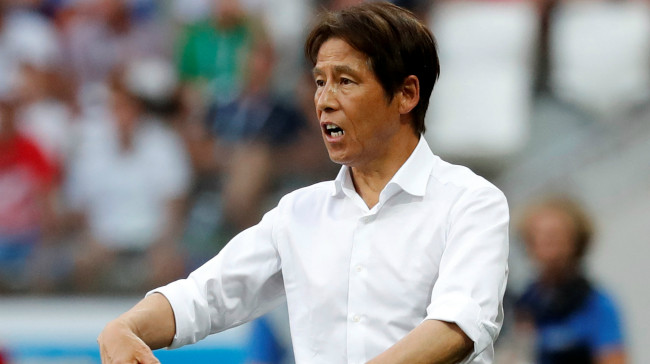Japan scraped through to the last 16 stage of the World Cup despite a 1-0 loss to Poland in their last group phase match and having an identical record to Senegal, courtesy of FIFA’s fair play tie-breaker system.
Japan coach Akira Nishino decided to “rely on the other match” in Samara, where Colombia were leading 1-0 against Senegal – a scoreline that would put Japan through via the fair-play rule provided they did not concede again or pick up any further yellow cards.
Japan picked up two less yellow cards then Senegal and played in a negative way in order to see out the game with just a 1-0 defeat. Nishino, however, sounded uncomfortable with a decision that went down badly with the majority of the spectators inside the stadium as the end of the match was played out to whistling and boos.
“It was a very tough decision, of course,” Nishino said. “We conceded a goal, but with the time passing the other match moved [when Colombia took the lead]. When I put on [Makoto] Hasebe [in the 82nd minute] I told him what was in my mind: ‘Do not go for any high risks.’ I told him not to concede any yellow cards, go 4-1-4-1, defensive, and then I told him to tell the team to ‘stay put’. We could not concede another goal. So with the time passing it was my decision to stay put, and then when I used Hasebe it was the ultimate message,” the Japan coach was quoted as saying by The Guardian.
“I’m not too happy about this but I forced my players to do what I said. We did not go for victory, but we just relied on the other match. I view that it was slightly regrettable but I suppose at that point that I didn’t have any other plans. The World Cup is such that these things happen. And we went through. Therefore it was perhaps the right decision,” Nishino concluded.




 For all latest news, follow The Daily Star's Google News channel.
For all latest news, follow The Daily Star's Google News channel. 










Leave your comments